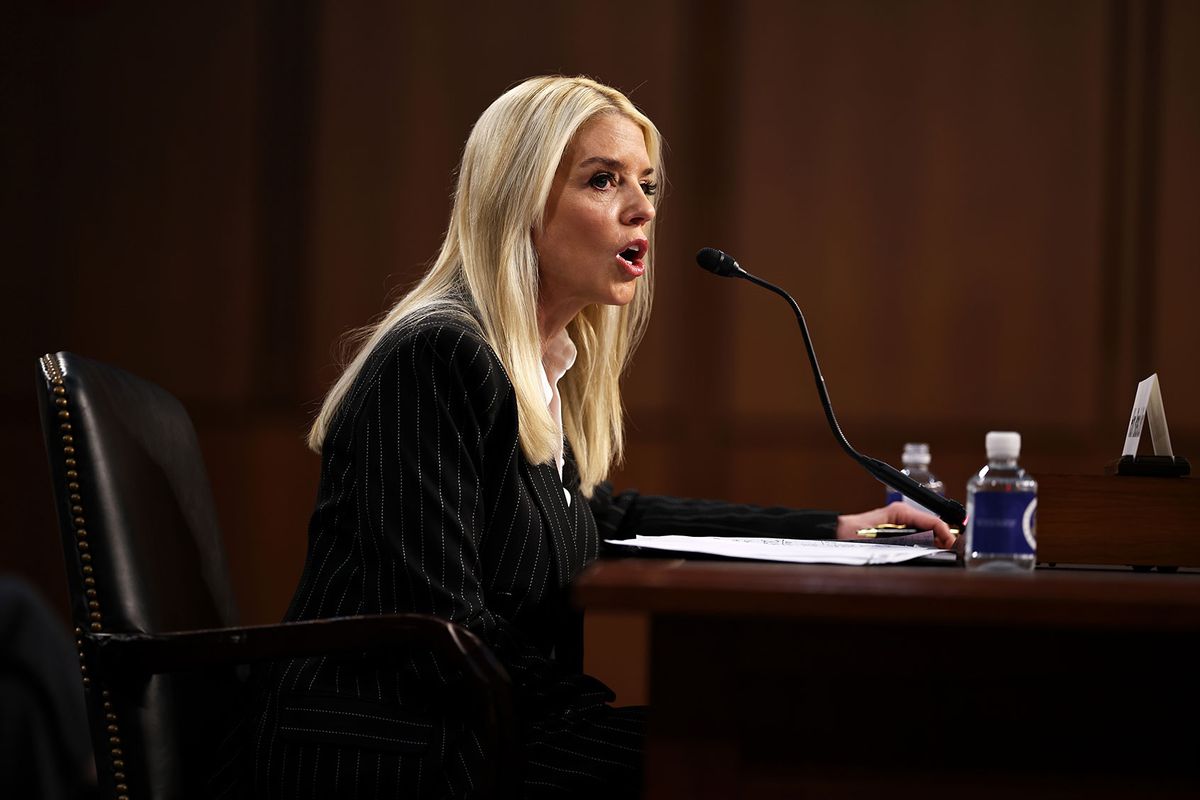As a former Justice Department (DOJ) ethics attorney, I was ousted for saying no to something questionable the government wanted to do, namely a harsh interrogation of an American captured in Afghanistan after 9/11 without his counsel present. So it is distressing to now read that the department has placed one of its top immigration lawyers on leave for failing to follow questionable orders.
The apparent infraction of the senior career attorney, Erez Reuveni, is that he truthfully conceded in court that the transfer of a Maryland man to an El Salvadoran gulag — despite a court order allowing the man to stay in the U.S. — was erroneous. Reuvani is among several recent high-level career officials who’ve suffered adverse personnel actions, including termination, for refusing to comply with a directive from Trump or his team to take an action the DOJ official determines to be illegal, unethical or both.
There are over 44,000 lawyers employed by the federal government, in every branch and at every level. Case law, statutes, and legal scholarship have long recognized that government attorneys have ethical obligations in addition to those placed on other lawyers. Additionally, although part of the executive branch, the Justice Department has long held the laudable, however imperfect, distinction of being independent. While there is no explicit codification of this independence, it is grounded in prosecutors’ use of institutional norms, internal DOJ regulations, and professional responsibility rules to maintain autonomy and impartiality. Todd Blanche, President Trump’s former criminal defense lawyer turned Deputy United States Attorney General (AG), accused Reuveni of “engaging in conduct prejudicial to your client.” This begs the question of whose interest the government lawyer serves: his or her section supervisor, branch chief, division head, the agency itself, its statutory mission, the government writ large, the people as a whole, the public interest, or some combination thereof.
The problem with President Trump is that he has a different view of government lawyers’ obligations altogether: they are his personal attorneys. A prime example is Trump’s nominee for U.S. Attorney for the District of Columbia, Ed Martin, whose confirmation was just put on hold by a Congressman because Martin “consistently undermined the independence and abused the power of the US Attorney’s office.” Specifically, Martin, who was a proponent of “Stop the Steal,” openly threatened and intimidated political rivals, dismissed charges against criminal defendants he was still representing, fired public servants for their roles in legitimate investigations, used his office to crack down on dissent and free speech and made a number of controversial statements and decisions. On top of that, he has little prosecutorial experience, especially in running DC’s office, which is unique in the size and scope of its work because it serves as both the local and the federal prosecutor of the nation’s capital.
Neither Trump, nor Blanche nor Martin seems to grasp the difference between a private attorney and one in the public sector, despite serving as president, Deputy AG, and an interim U.S. Attorney, respectively. They are also unwilling or unable to abide by basic ethics rules that govern all lawyers, despite multiple Trump attorneys having been suspended, disbarred, or sentenced to prison (think Rudy Giuliani, Michael Cohen, Kenneth Chesebro, John Eastman, and Jenna Ellis) for the same failure. In fact, many lawyers believe that government attorneys owe a higher duty to the public. The government may sometimes have a valid legal argument, but citizens generally want their government to operate on a more elevated plane than the bare minimum of what the law requires.
We need your help to stay independent
Justice Department attorneys have long stood up to presidents. AG Francis Biddle opposed the internment of Japanese-Americans during World War II. Special Prosecutor Archibald Cox refused to curtail the Watergate investigation against President Nixon’s wishes. Even attorneys in Trump’s prior administration have pushed back. AG Jeff Sessions recused himself from the Department’s inquiry into Russian meddling in the 2016 elections. Another Trump AG, Bill Barr, opposed Trump when he concluded that the Department had found no evidence of large-scale voter fraud that would overturn Biden’s victory in 2020.
Like Reuvini, I was a career civil servant. Like Reuvini, I had been praised by my supervisors and recently promoted. Like Reuvini, I dared to advise the department to confess its error to the court. For my actions, I was ultimately forced out of my job, referred to the state bars in which I am licensed as an attorney, and put on the “No-Fly List.” As a DOJ alum, an employment lawyer and someone who served on the D.C. Bar Legal Ethics Committee, I hope that the current Justice Department has the institutional wisdom and integrity to restore Reuveni to work with no adverse consequences to his career. He upheld his duty of candor to the tribunal and his obligation not to engage in conduct involving dishonesty, fraud, deceit or misrepresentation – which is more than I can say for the government lawyers who flouted a federal court order curtailing deportation on the flimsy excuse that it was initially issued orally rather than in writing.
The mistake here was wrongfully accusing a protected legal resident, Kilmar Abrego Garcia, of being a “convicted” “gang member” of “MS-13” “involved in human trafficking” (the government has issued no evidence in support of any of the allegations in scare quotes) and sending him to a notoriously violent prison in a country from which he was given sanctuary. I was old school in believing that, in the words of the Supreme Court, a government lawyer’s “interest in a criminal prosecution is not that it shall win a case, but that justice shall be done.” I hope this maxim still holds.
Read more
about this topic



Shares